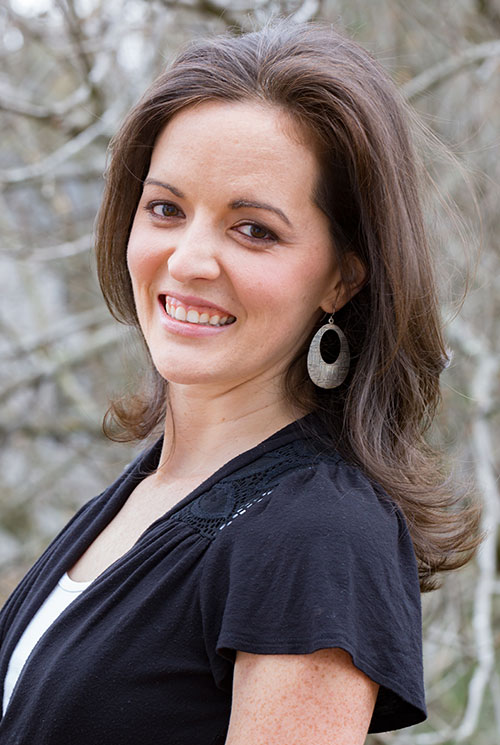
“How do I get out of this?”
This is the question many women ask when their lives feel out of control because they struggle with pornography, lust, masturbation, fantasy or another form of sexual desire.
We want “5 Easy Steps” or “3 Simple Solutions,” but the bad news is they don’t exist.
If you’ve developed patterns of sexual behavior that feel out of control, you can’t take shortcuts in finding freedom.

That type of change and healing takes time.
You start down the road of healing by being honest with God, yourself and someone you trust.
You establish good boundaries. You watch out for triggers. You engage in healthy community.
But accountability is what keeps you walking down that road towards freedom.
Accountability is deciding to answer to someone for our choices. It’s a way of taking responsibility for our actions.
When it comes to pornography, masturbation or other sexual struggles, we need accountability with another person to break through the denial that we can manage the problem on our own.
Experts in sexual addiction suggest that the opposite of addiction isn’t sobriety, it’s intimacy. That’s because real intimacy is the thing we’re all really looking for. It’s the absence of authentic intimacy, often caused by our own sense of shame, that we are medicating with our sexual behavior.
An accountability partner cannot fight your battles for you, even if they want to.
Think of a training partner helping you prepare for a marathon.
They can’t run the race for you, or even do the training for you. But they can commit to training with you and asking you questions about your diet, fitness regime, emotional state or anything affecting your ability to achieve your goal.
You want someone in your life who encourages you to get back up when you feel like collapsing.
When it comes to dealing with sexual desires, you want an accountability partner you think is somewhere ahead of you, not someone who feels just as overwhelmed.
The 12 Step program, which helps people recover from a wide variety of addictive behaviors, refers to this kind of a person as a sponsor. This article may help you think more about how to establish healthy accountability with someone else.*
*You are going to the website of another organization – Cru does not endorse either the organization or the content on this site – use at your own discretion.
It’s important to know what you want from the relationship. Here’s some things to consider:
Knowing what you want helps you decide who you want.
Communicate clearly what you think will help you. You might begin by telling someone you have a personal struggle you would appreciate their input on. When you meet to discuss your situation you might say something like:
“Jane, I told you I wanted us to talk about something I’m struggling with.
The truth is I’ve been struggling with (name your specific issue), and I know I can’t overcome this alone.
I need someone who’ll check in on me a couple times a week and pray for me when I’m struggling.
I give you permission to ask hard questions, and I promise to answer them honestly.”
As I’ve worked with women throughout the years, I’ve found there are two types of accountability: active and passive.
1. Active accountability is more “in-your-face.” It’s the daily check-in, the weekly meeting, the Bible study specifically centered on your sexual struggle.
Active accountability helps break up old habits and form new ones.
This works well in a supportive community you might find at a college or in a church youth group.
Seeing the same people regularly builds relationships that feel safe enough for honest accountability.
2. Passive accountability is a less “hands-on” approach.
There may come a point in your journey when daily check-ins will either be impossible or unhelpful. As you graduate from college, for example, and transition to a new church, city, or career, a daily check-in might be impractical.
You may also heal to the degree that being asked daily “Did you watch porn in the last 24 hours?” is no longer helpful.
You should only decide you’re at this point through a conversation with your accountability partner though.
If you reach that place, then consider passive accountability.
Passive accountability is more about having someone who knows your story and your struggle and is there in case of emergencies.
Either way, successful accountability rests on your honesty and your commitment.
You are asking someone to join your team as you fight for freedom in your life.
Who can you ask to join your team?
How Could You Love Me if You Really Knew Me?
How To Enjoy Sex the Way God Designed
Warning - Porn and Masturbation Are Not Safe Sex
What Do I Do With My Craving For Sex?
Do I Really Need to Tell Somebody?
Who’s The Last Person You Want to Forgive?
So What Is Triggering Your Sexual Desire?
How Far is Too Far When You’re Dating?
No One Can Fight Your Battles, But They Can Stand With You

Jessica Harris an international speaker, blogger and author of Beggar’s Daughter and Love Done Right: Reflections. To discover more resources for women struggling with sexual sin, visit Jessica’s website: www.beggarsdaughter.com.
© GCMN - A ministry of Campus Crusade for Christ International. All Right Reserved.